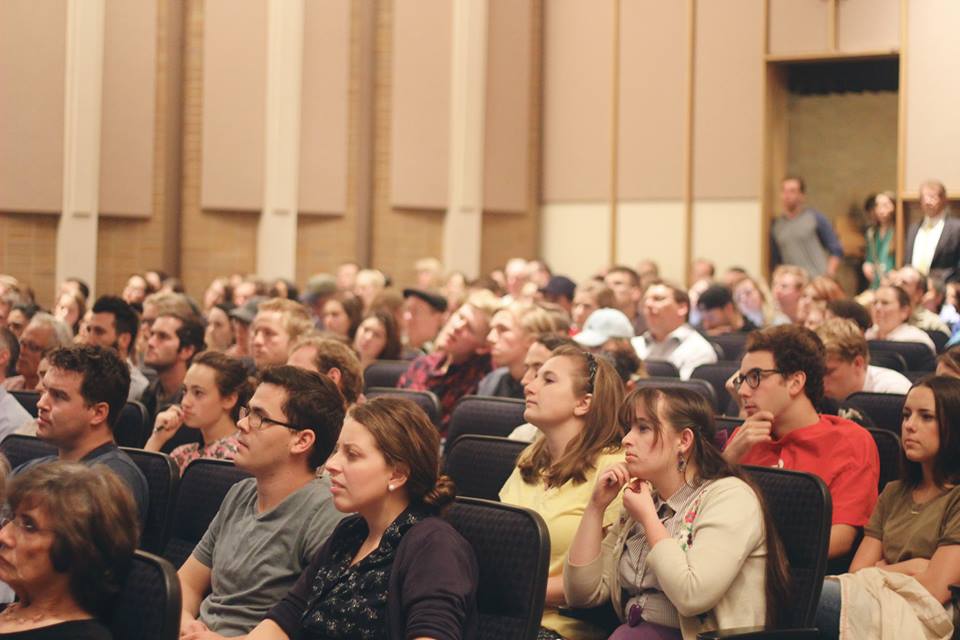
The Summerhays Lecture is an annual event bringing together two unlikely subjects — faith and evolution — but biology professor Steven Peck said the two are not mutually exclusive.
Peck addressed a full audience on Thursday, Sept. 22. Peck is a pioneer in the field of combining evolution and faith.
He began by explaining the LDS Church’s position on evolution. In this October’s New Era magazine, the Church said there is no official stance and organic evolution was a matter of scientific study.

“This may be different than the perspective you grew up with, but it comes straight from the New Era,” Peck said. “So you have to believe it.”
Peck said he was fascinated by dinosaurs and natural processes as a child, but he didn’t believe evolution and the gospel could be intertwined. During his mission in Arkansas, he told an investigator to give up his belief of evolution to be baptized.
But Peck explored how evolution and faith could go together after returning home. He said he was grateful he attended BYU because he might not have understood evolution in the right context if he had studied at another university.
People often have a difficult time understanding they don’t have to pick between having faith and believing in evolution, Peck said, but he told the audience science and religion can go together.
“You could believe in evolution and be an active Mormon,” Peck said.
Peck explained what science is. He said the definition of science as a methodological materialism, with no miracles or hidden forces, bothers some people. Peck said he doesn’t believe scientists can’t be religious or believe in God.
“It’s just that God is not expected to interfere with the laws of the universe,” Peck said. “And if you’re LDS, we do believe in the laws of regularities. Science does its work here. It figures out those regularities.”
Peck said because science is a human activity measured by imperfect people, it can biased and prone to mistakes. But it is also a powerful tool that advances society in many ways.
“If you don’t believe this, the next time you go to the hospital, tell them you want the 1930s treatment,” Peck said.

Peck asked the crowd to imagine two video game programs and decide which one is greater. In the first program, the creator has to program every single game ever created. In the second, the creator can create a program where he only has to type “go,” and all other programs appear. Peck said the second program is greater.
“God is not diminished if he’s created a universe whereby things can evolve,” Peck said.
Peck encouraged the audience to allow members to believe in the gospel and in evolution.
“Don’t tell the youth of the church that evolution is of the devil,” Peck said. “You are setting them up for a dichotomy, and it is unnecessary and dangerous. Losing the benefits of the church is a terrible thing to lay on your interpretation of the scriptures.”
But Peck said religion plays a role in explaining the world’s natural phenomenon.
“Faith teaches me things I would have learned through no other way,” Peck said.
This year’s lecture was titled “Evolving Faith: Putting Evolution in an LDS Context.” The title “Evolving Faith” comes from Peck’s new book, published last year by the Neal A. Maxwell Institute.




